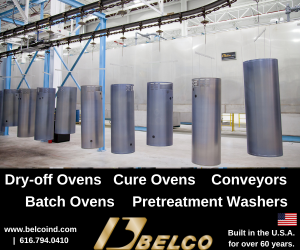Abstracts Due For Waterborne, High-Solids and Powder Coatings Symposium
The conference, sponsored by the School of Polymers and High Performance Materials at the University of Southern Mississippi, will be held February 24 to March 1, 2019, in New Orleans, Louisiana.
Abstracts for the 46th annual International Waterborne, High-Solids and Powder Coatings Symposium are being accepted through September 15. The conference, sponsored by the School of Polymers and High Performance Materials at the University of Southern Mississippi, will be held February 24 to March 1, 2019, in New Orleans, Louisiana.
Conference organizers are looking for papers pertaining to new and emerging technologies in the field of surface coatings related to materials, processes, production, characterization, application and markets. Suggested topics include but are not limited to:
- Waterborne
- High solids
- Nano (structure or technology)
- Emulsion
- Additives
- Corrosion
- UV
- Pigments
- Powder coatings
- Other coatings-related topics
Show organizers say papers will be selected based on the submitted abstracts, and all speakers must submit a paper for publication in the annual proceedings book. Papers that are considered principally commercial in nature will not be accepted. They also must be original and represent recent advancements in coatings science or related disciplines.
Visit waterbornesymposium.com.
Related Content
-
Masking Solutions Provider CFS Dramatically Expands Capabilities and Capacity
Custom Fabrication & Supplies (CFS) completed a new plant expansion packing 10 times the capacity into twice the space. It dramatically enhances the supplier’s custom capabilities to provide extremely precise and cost-effective masking solutions.
-
Finishing Systems Provider Celebrates 150 Years, Looks to Future
From humble beginnings as an Indiana-based tin shop, Koch Finishing Systems has evolved into one of the most trusted finishing equipment providers in the industry.
-
Zinc Phosphate: Questions and Answers
Our experts share specific questions about zinc phosphate and pretreatment










.jpg;maxWidth=300;quality=90)

